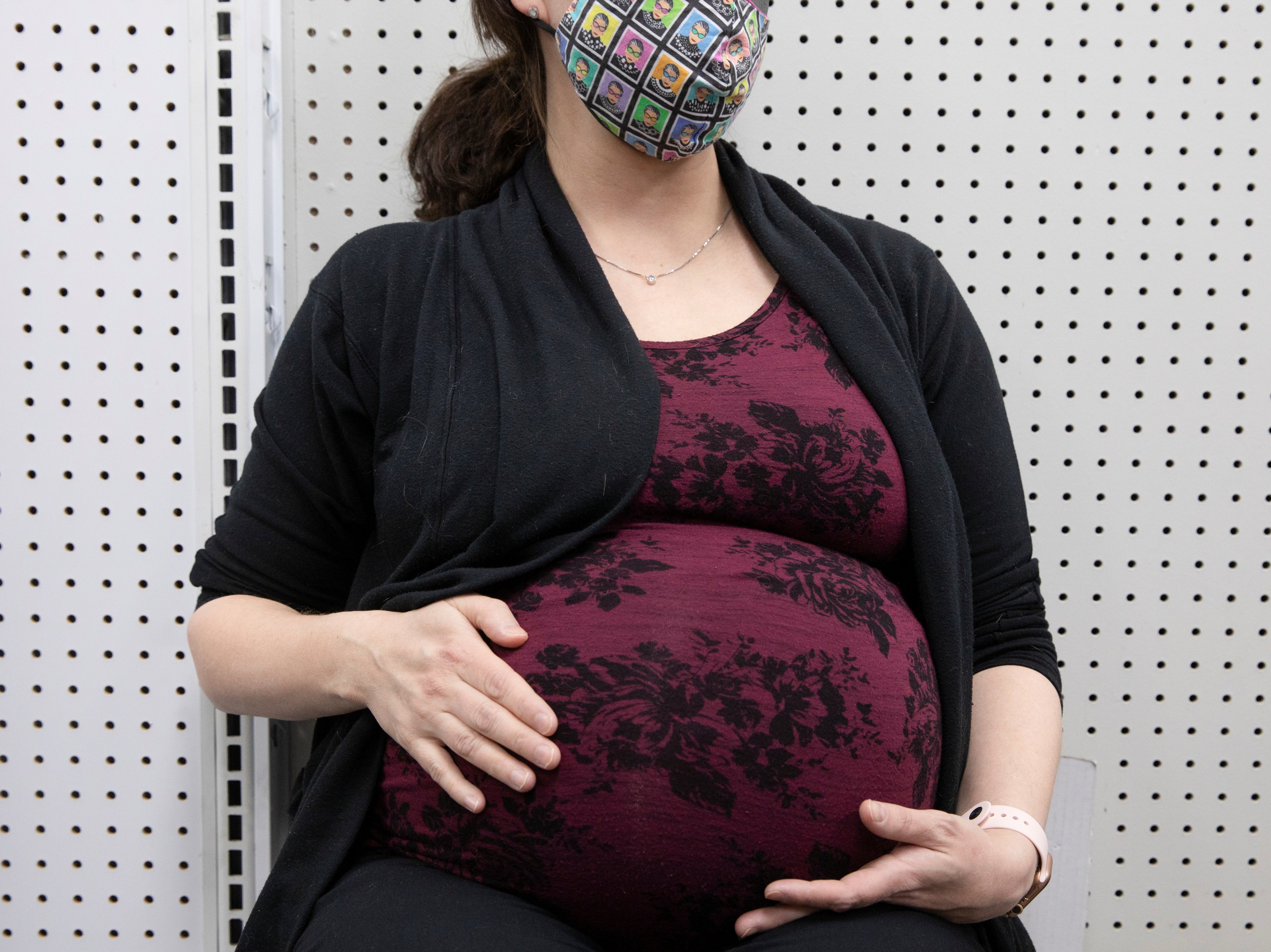Pregnant women at increased risk of severe Covid, global study says
Expectant mothers ‘should be considered high risk group’ based on findings, according to lead author

Your support helps us to tell the story
From reproductive rights to climate change to Big Tech, The Independent is on the ground when the story is developing. Whether it's investigating the financials of Elon Musk's pro-Trump PAC or producing our latest documentary, 'The A Word', which shines a light on the American women fighting for reproductive rights, we know how important it is to parse out the facts from the messaging.
At such a critical moment in US history, we need reporters on the ground. Your donation allows us to keep sending journalists to speak to both sides of the story.
The Independent is trusted by Americans across the entire political spectrum. And unlike many other quality news outlets, we choose not to lock Americans out of our reporting and analysis with paywalls. We believe quality journalism should be available to everyone, paid for by those who can afford it.
Your support makes all the difference.Pregnant women are at increased risk of having a severe form of Covid-19 compared to other women, according to an ongoing global study.
The research, led by the University of Birmingham and World Health Organisation (WHO), found pregnant women were more likely to be admitted to intensive care or need invasive ventilation after contracting coronavirus than non-pregnant reproductive aged women.
Expectant mothers from ethnic minority backgrounds, or with pre-existing conditions such as obesity, high blood pressure and diabetes, were particularly at risk, researchers said.
The study, published in the British Medical Journal (BMJ) on Thursday, is part of an ongoing review and meta-analysis of data, which began in April 2020, and follows the researchers’ first publication in the BMJ last August.
This latest publication details analysis of the results of 192 studies - an additional 115 studies than were included in the August publication - into the impact of Covid-19 on pregnant women and their babies.
The review found one in 10 pregnant and recently pregnant women attending or admitted to hospital for any reason were diagnosed with confirmed Covid-19.
Overall, 339 pregnant women with confirmed Covid-19 died from any cause (0.02 per cent of a total 41,664 women involved in 59 studies). The overall rates of stillbirth and neonatal death are low in women with suspected or confirmed Covid-19, the review found.
The most common clinical symptoms of Covid-19 in pregnant women were fever (40 per cent) and cough (41 per cent), although compared to non-pregnant women of reproductive age, pregnant and recently pregnant women with Covid-19 were more likely to be asymptomatic.
Increased maternal age, high body mass index, non-white ethnicity, and pre-existing comorbidity, including chronic hypertension and diabetes, were identified as risk factors for pregnant women developing severe Covid-19.
While there is emerging evidence from the review that pregnancy-specific conditions such as pre-eclampsia and gestational diabetes may be associated with severe Covid-19, the authors said more data is needed to robustly assess the association between pregnancy-specific risk factors and Covid-19-related outcomes.
Lead author Dr John Allotey, of the University of Birmingham-based WHO Collaborating Centre for Global Women’s Health, said: “Pregnant women should be considered a high risk group, particularly those identified to have risk factors, for severe Covid-19 based on our findings.
“Mothers should also be reassured that the risks to their babies is very low.”
Professor Shakila Thangaratinam, corresponding author and co-director of the WHO Collaborating Centre for Global Women's Health at the University of Birmingham, added: “In the current situation, where evidence is rapidly produced, our living systematic review - underpinned by robust methods and continually updated at regular intervals - is crucial to address important research questions and to shape healthcare policy and clinical decision-making.
“Pregnant women and healthcare professionals will need to take into account the additional risks faced by pregnant women with Covid-19 in making decisions such as taking-up of vaccines if offered to prevent Covid-19, and plan management in pregnancy.”
Subscribe to Independent Premium to bookmark this article
Want to bookmark your favourite articles and stories to read or reference later? Start your Independent Premium subscription today.




Join our commenting forum
Join thought-provoking conversations, follow other Independent readers and see their replies
Comments